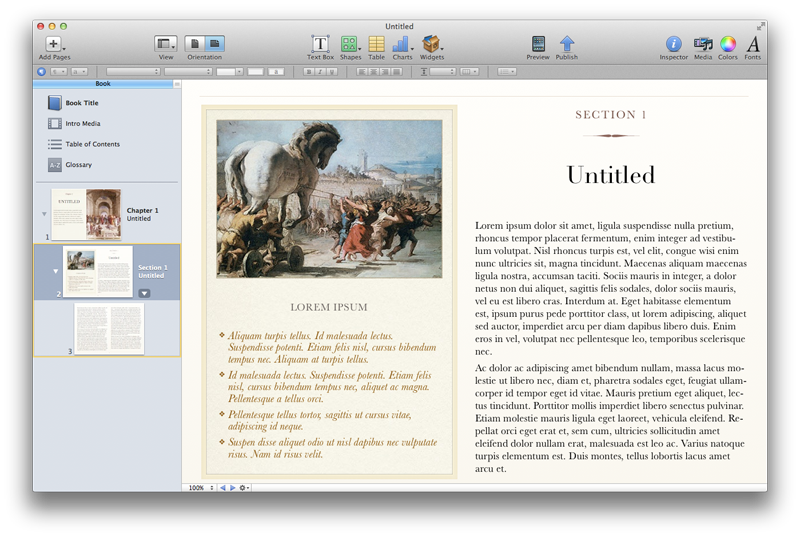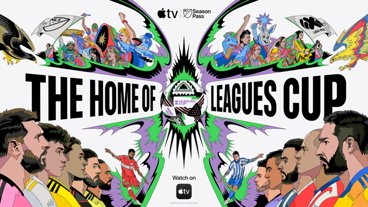Steve Jobs rumored to have shot down Push Pop Press for iBooks Author - Updated
Last updated
According to an unverified report from a source who worked with Push Pop Press co-founder Mike Matas, Jobs met with the fledgling company and warned Matas that if he pursued building dynamic books targeted at the App Store he would risk intellectual property claims.
Update: Matas' cofounder Kimon Tsinteris wrote AppleInsider, calling the rumor "factually inaccurate" and noting that Apple awarded Push Pop Press an Apple Design Award.
Tsinteris asked, "If we copied Apple, why does Our Choice actually feel nicer than any iBooks 2 title?" "Our Choice" is a native app, rather than being a web-based ebook as iBooks 2.
We have asked both Matas and Tsinteris for further clarification of the situation, but have not yet received a response.
Matas, a former designer at Apple, reportedly used a variety of patented technologies developed at Apple to deliver his plans for Push Pop Press. His company intended to give publishers a way to develop smoothly interactive titles that blurred the line between book and app.
A key element of the patent conflicts surrounded the "physics engine" Tsinteris was credited with designing for the new company; both Tsinteris and Matas are listed as a contributors to a number of patents that are assigned to Apple. In many states, work created while employed by a company belongs to that company and can't be used without permission after the employee leaves.
Over the course of 2011, while Push Pop Press developed its publishing tools and worked with Apple board member Al Gore to deliver his "Our Choice" book as a flagship example of what the new publishing platform could deliver (shown below), Apple itself was busy working on developing its textbook strategy.
Apple had already delivered its Xcode 4.0 and iAd Producer development tools in 2010, delivered last year's new iBooks app alongside iPad 2, and was preparing to release basic EPUB support in Pages 09. But it was also deep into development of its iBooks 2.0 strategy revolving around the iBooks Author and iTunes U initiatives announced earlier today, at the heart of which were textbooks aimed at deployment on iPad.
Jobs reportedly delivered an ultimatum to Matas that resulted in the company selling itself to Facebook as a talent-based acquisition that abandoned its allegedly tainted ebook apps business model.
Because Push Pop Press planned to deliver its version of ebooks as native iOS apps, Apple's iOS App Store was ultimately the sole potential distributor the finished work Push Pop Press would have created, giving the company little leverage in arguing around any IP claims by Apple.
 Daniel Eran Dilger
Daniel Eran Dilger














 Amber Neely
Amber Neely
 Thomas Sibilly
Thomas Sibilly
 AppleInsider Staff
AppleInsider Staff
 William Gallagher
William Gallagher
 Malcolm Owen
Malcolm Owen
 Christine McKee
Christine McKee










22 Comments
Such a shame that Matas isn't at Apple anymore and wasting his time at Facebook.
He even gave a nervous TED talk about this. I wondered where it went.
I remember when he was just a kid on these boards who drew icons and was a bad speller.
The Designer is a fool.
To be clear, when you sign your NDA with Apple [just like NeXT] all projects you work on outside of the Company must be signed off and agreed to, in writing, by the Executives with the authority to do so.
Otherwise, all work is the property of `The Company.'
This is not rocket science.
It is theft and the guy's product had no future.
Dilger took this information wholesale from a thread on a Daring Fireball post with the Daring Fireball With Comments Safari extension.
http://daringfireballwithcomments.net/
http://daringfireball.net/linked/201...ation#comments
Dilger took this information wholesale from a thread on a Daring Fireball post with the Daring Fireball With Comments Safari extension.
http://daringfireballwithcomments.net/
http://daringfireball.net/linked/201...ation#comments
Well either that, or the same source posted the same comments to various sites. But why do you raise that like its an issue?
Also, if Gruber wanted comments on his site he'd simply enable them. Snide comments like yours illustrate pretty well why he doesn't want comments on his site, and why third parties have to hang them off the side.